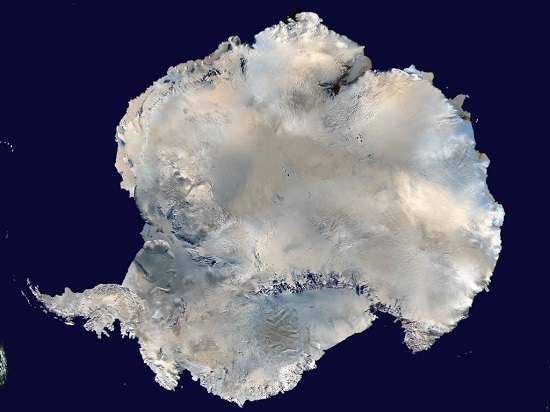
Story of the Week... Opinion of the Week... Toon of the Week... Quote of the Week... Graphic of the Week... Photo of the Week... SkS Spotlights... Video of the Week... Coming Soon on SkS... Poster of the Week... SkS Week in Review... 97 Hours of Consensus...

As our planet continues to warm, coastlines worldwide will retreat inland — in the long run, maybe by a lot. That means some coastal cities, in places like Florida — where Hillary Clinton and Bernie Sanders debated precisely this topic on Wednesday night — stand to lose quite a lot of land where people currently live and own property.
It seems doubtful that we can defend all of the many coastal zones that will be at risk. So is there any other way to head off sea level rise?
It may sound ridiculous to even contemplate. But in a new study just out in the open access journal Earth System Dynamics, scientists have actually published an idea for doing that and provided some calculations regarding the scale of what it would take. That scale turns out to be simply massive, ultimately rendering the idea about as unfathomable as the oceans themselves.
This mind-boggling study shows just how massive sea level rise really is by Chris Mooney, Energy & Environment, Washington Post, Mar 10, 2016
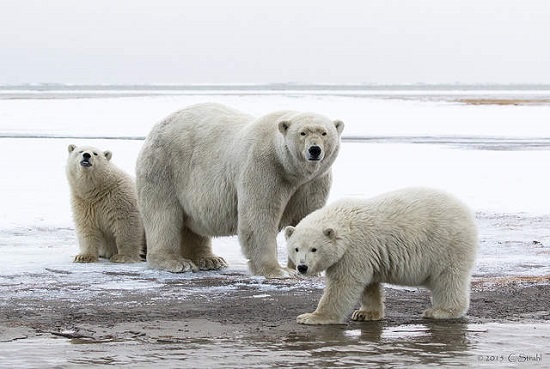
The key to saving polar bears from their grim fate is making aggressive and rapid cuts in carbon pollution. Keeping global average temperature rise below 1.5 degrees Celsius, in line with the Paris Agreement, will help preserve polar bears in many parts of their range, protect Arctic sea ice, and avoid many of the worst consequences of climate change.
At the heart of the matter is fossil-fuel production and consumption. The science is clear that keeping the vast majority of the world’s fossil fuels in the ground is necessary not only to protect the polar bear but help preserve a livable planet for the rest of us.
And the fossil-fuel lobby bankrolls climate science deniers to distract the public from exactly that.
Many people know to put reports by climate science denial propaganda outfits in the trash bin where they belong. As evidence of climate change becomes more overwhelming, their rhetoric becomes more absurd, pushing their voices deeper into the fringe.
Polar Bears at Ground Zero for Climate Change and Climate Science Deniers, Opinion by Shaye Wolf, DeSmog UK, Mar 5, 2018
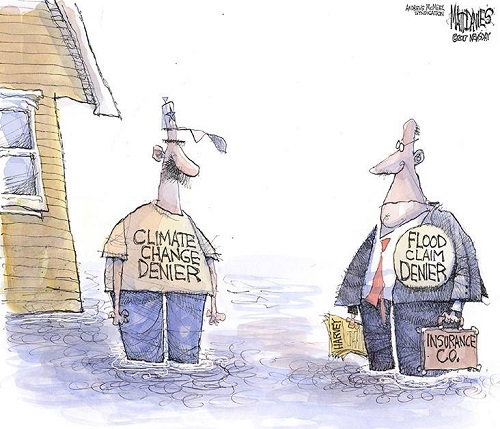
Hat tip to Stop Climate Science Denial
The Arctic winter has ended with more news that is worrying even the scientists who watch the effects of climate change closely.
The region experienced its warmest winter on record. Sea ice hit record lows for the time of year, new US weather data revealed on Tuesday.
“It’s just crazy, crazy stuff,” said Mark Serreze, director of the National Snow and Ice Data Center in Boulder, Colorado, who has been studying the Arctic since 1982. “These heat waves – I’ve never seen anything like this.”
Arctic has warmest winter on record: 'It's just crazy, crazy stuff', Environment, AP/Guardian, Mar 6, 2018
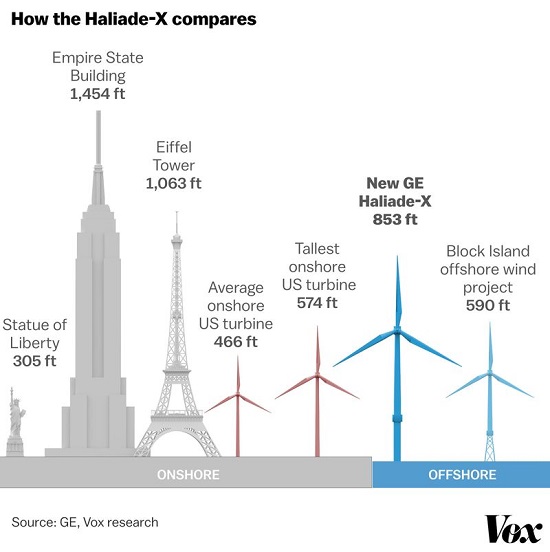
These huge new wind turbines are a marvel. They’re also the future. by David Roberts, Energy & Environment, Vox, Mar 8, 2018
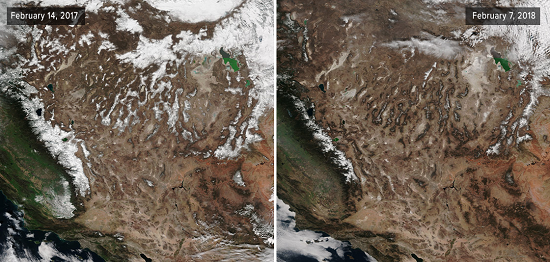
So far this year, snow levels across the Southwest — in particular the Sierra Nevada mountains and Southern Rockies — have been below average and much lower than those seen in 2017. The Northern Rockies, however, experienced a cold and wet February and winter, which led to record-high mountain snowpack in some areas. (Images from the Suomi NPP satellite via NOAA Satellite and Information Service.) (NOAA)
Sorry, Groundhog: February and Winter 2018 were warmer than average for the U.S. by Brady Phillips, NOAA News Release, Mar 7, 2018

ClimateWise supports the insurance industry to better communicate disclose and respond to the risks and opportunities associated with the climate-risk protection gap. This is the growing divide between total economic and insured losses attributed to climate change.
Representing a growing global network of leading insurance industry organisations, ClimateWise helps to align its members’ expertise to directly support society as it responds to the risks and opportunities of climate change.
We all remember the chorus around this year’s disastrous hurricane season: “Don’t politicize this! We don’t know if it’s climate change!” Well, thanks to a new field of scientific study, we actually do know if an extreme weather event was made possible by climate change. Get to know … extreme weather attribution!
Climate change made Hurricane Harvey wetter. Here’s how we know. by Jesse Nichols & Eve Andrews, Grist, Mar 6, 2018
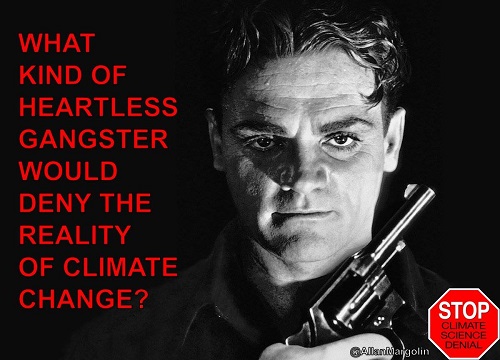
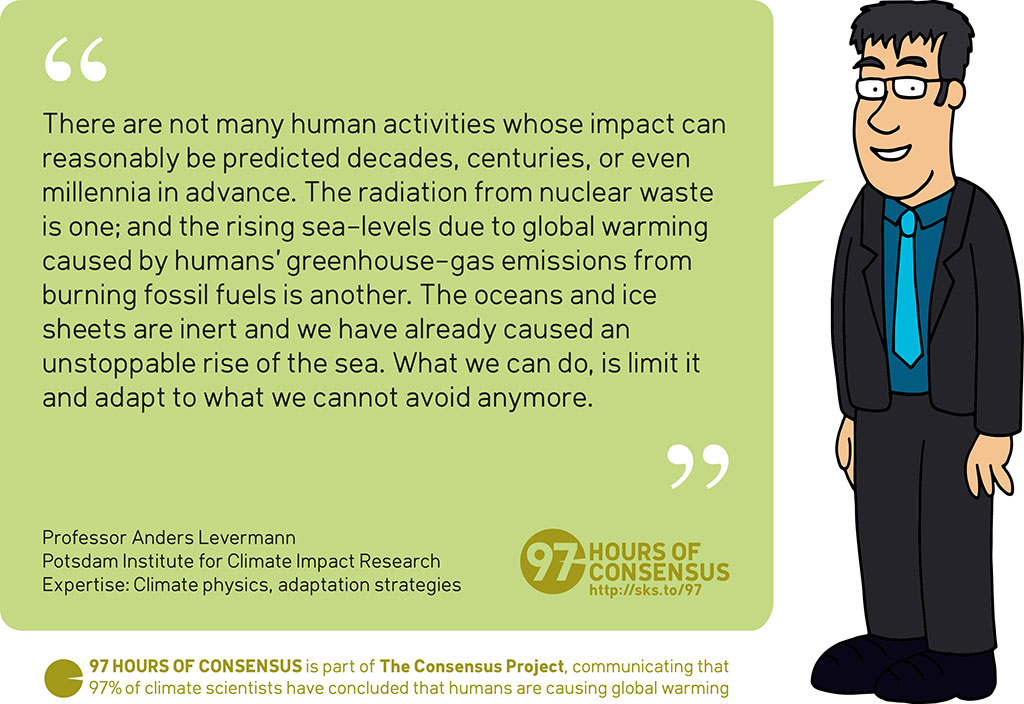
Anders Levermann's bio page and quote source.
High resolution JPEG (1024 pixels wide)
Posted by John Hartz on Sunday, 11 March, 2018
 |
The Skeptical Science website by Skeptical Science is licensed under a Creative Commons Attribution 3.0 Unported License. |